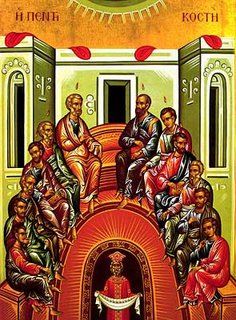Archbishop of Canterbury's letter
Read the Archbishop of Canterbury's letter to the Anglican faithful regarding the situation of the American church and its implications for global Anglican Communion.
His suggestion that perhaps a kind of schism is inevitable is tragic. He proposes that those unagreeable to a common statement of doctrine and practice on homosexuality would be "associate" members of the Anglican Communion.
But on the way to the messy stuff, he does some great summary stuff on the debate over homosexuality, and where it has been misunderstood. To wit:
He points out why gay ordination and blessings is a different issue than women's ordination to either the presbytery or the episcopacy:
His suggestion that perhaps a kind of schism is inevitable is tragic. He proposes that those unagreeable to a common statement of doctrine and practice on homosexuality would be "associate" members of the Anglican Communion.
But on the way to the messy stuff, he does some great summary stuff on the debate over homosexuality, and where it has been misunderstood. To wit:
It is possible – indeed, it is imperative – to give the strongest support to the defence of homosexual people against violence, bigotry and legal disadvantage, to appreciate the role played in the life of the church by people of homosexual orientation, and still to believe that this doesn’t settle the question of whether the Christian Church has the freedom, on the basis of the Bible, and its historic teachings, to bless homosexual partnerships as a clear expression of God’s will. That is disputed among Christians, and, as a bare matter of fact, only a small minority would answer yes to the question.
Unless you think that social and legal considerations should be allowed to resolve religious disputes – which is a highly risky assumption if you also believe in real freedom of opinion in a diverse society – there has to be a recognition that religious bodies have to deal with the question in their own terms. Arguments have to be drawn up on the common basis of Bible and historic teaching. And, to make clear something that can get very much obscured in the rhetoric about ‘inclusion’, this is not and should never be a question about the contribution of gay and lesbian people as such to the Church of God and its ministry, about the dignity and value of gay and lesbian people. Instead it is a question, agonisingly difficult for many, as to what kinds of behaviour a Church that seeks to be loyal to the Bible can bless, and what kinds of behaviour it must warn against – and so it is a question about how we make decisions corporately with other Christians, looking together for the mind of Christ as we share the study of the Scriptures.
He points out why gay ordination and blessings is a different issue than women's ordination to either the presbytery or the episcopacy:
There are other fault lines of division, of course, including the legitimacy of ordaining women as priests and bishops. But (as has often been forgotten) the Lambeth Conference did resolve that for the time being those churches that did ordain women as priests and bishops and those that did not had an equal place within the Anglican spectrum. Women bishops attended the last Lambeth Conference. There is a fairly general (though not universal) recognition that differences about this can still be understood within the spectrum of manageable diversity about what the Bible and the tradition make possible. On the issue of practising gay bishops, there has been no such agreement, and it is not unreasonable to seek for a very much wider and deeper consensus before any change is in view, let alone foreclosing the debate by ordaining someone, whatever his personal merits, who was in a practising gay partnership.And, amazingly enough, he manages to pull off an engaging appeal for being Anglican:
The different components in our heritage can, up to a point, flourish in isolation from each other. But any one of them pursued on its own would lead in a direction ultimately outside historic Anglicanism The reformed concern may lead towards a looser form of ministerial order and a stronger emphasis on the sole, unmediated authority of the Bible. The catholic concern may lead to a high doctrine of visible and structural unification of the ordained ministry around a focal point. The cultural and intellectual concern may lead to a style of Christian life aimed at giving spiritual depth to the general shape of the culture around and de-emphasising revelation and history. Pursued far enough in isolation, each of these would lead to a different place – to strict evangelical Protestantism, to Roman Catholicism, to religious liberalism. To accept that each of these has a place in the church’s life and that they need each other means that the enthusiasts for each aspect have to be prepared to live with certain tensions or even sacrifices – with a tradition of being positive about a responsible critical approach to Scripture, with the anomalies of a historic ministry not universally recognised in the Catholic world, with limits on the degree of adjustment to the culture and its habits that is thought possible or acceptable.


